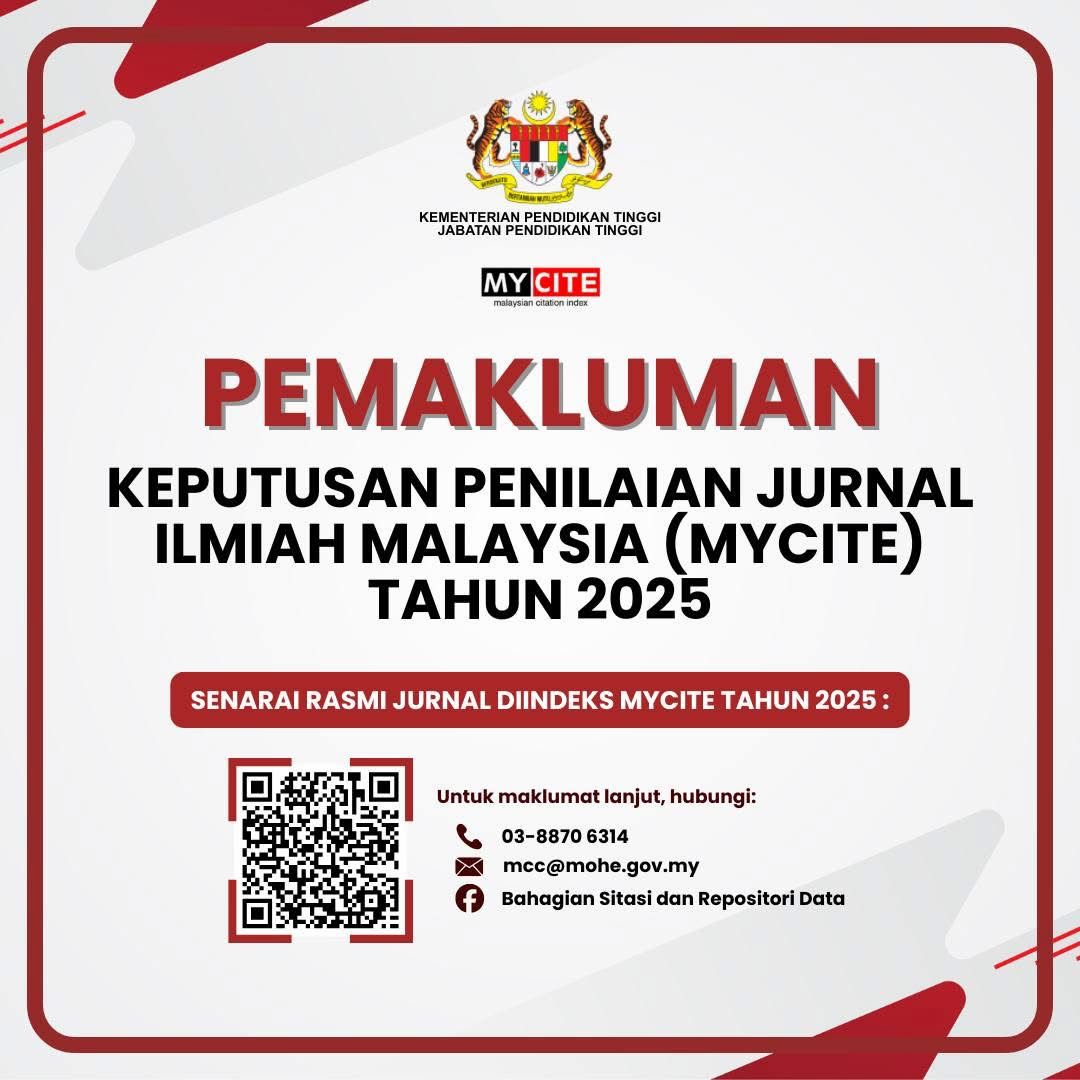The Methodology in Islamic Legal Ruling of The Religious Extremism Groups
An Introduction
DOI:
https://doi.org/10.24191/idealogy.v3i2.54Keywords:
ekstremisme agama, takfir, hukum Islam, literalis, wasatiyyahAbstract
Religious extremism is known to take a hard-line on defining religion. This interpretation has resulted in conflicts and tension in the Islamic society. For example, the tendency of takfir makes husband and wife relationships invalid, and even legitimising the blood of other parties. This ideology is perilous, especially in the context of plural society in Malaysia. In this regard, this study discusses the methodology of religious extremism groups in the Islamic legal ruling. To achieve this objective, this qualitative study fully employed the literature review methodology to collect articles for the review. Then, the content is analysed deductively to formulate the findings. The results of the study found that the religious extremists applied a literalist approach, and the nature of their verdict on laws tend to be punitive.
Keywords: Religious extremism, takfir, Islamic law, literalism, wasatiyyah
References
Maktabah al-Quds.
‘Audah, ‘Abd al-Qadir (1968). al-Tasyri‘al-Jinai’i al-Islami Muqarinan bi al-Qanun al-Wad‘i. Beirut:
Dar al-Kutub al-‘Arabi.
“A Call to Hijrah”. Dabiq 3. 10 September 2014,
https://clarionproject.org/docs/isis-isil-islamic-state-magazine-Issue-3- the-call-to-hijrah.pdf.
“Break the Cross”. Dabiq 15. 31 Julai 2016, http://clarionproject.org/wp- content/uploads/islamic-statemagazine-
dabiq-fifteen-breaking-the- cross.pdf.
“From Hypocrisy to Apostasy the Extinction of the Grayzone”. Dabiq 7. 10 September 2014,
https://clarionproject.org/docs/islamic-state-dabiq- magazine-issue-7-from-hypocrisy-toapostasy.
pdf.
“From the Battle of Al-Ahzab to the War of Coalitions”. Dabiq 11. 9 Ogos 2015,
http://clarionproject.org/wpcontent/uploads/Issue%2011%20%20From
%20the%20battle%20of%20AlAhzab%20to%20the%20war%20of%20co alitions.pdf.
“Sharia’h Alone Will Rule Africa”. Dabiq 8. 30 Mac 2015,
https://clarionproject.org/docs/isis-isil-islamic-state-magazine-issue+8- sharia-alone-will-ruleafrica.
pdf.
“The Flood”. Dabiq 2. 27 Julai 2014, https://clarionproject.org/docs/isis-isil- islamic-state-magazine-
Issue-2-the-flood.pdf.
“The Law of Allah or the Laws of Mens”. Dabiq 10. 13 Julai 2015, http://clarionproject.org/wpcontent/
uploads/Issue%2010%20%20The%20Laws%20of%20Allah%20
or%20the%20Laws%20of%20Men.pdf.
Al-Ghariyani, Al-Sadiq ‘Abd al-Rahman (2002). Zawahir min Ghuluw al-Tatarruf wa Ghuluw al-
Tasawwuf. Kaherah: Dar al-Salam.
Al-Ghazzali, Abu Hamid Muhammad (2003). al-Iqtisad fi al-I‘tiqad. Beirut: Dar Kutaiba.
Al-Ghazzali, Abu Muhammad (t.t). al-Mustasfa min ‘ilm al-Usul. Kuliyyah al-
Syari’yyah: Jami’ah Madinah.
Al-Khin, Mustafa, al-Bugha, Mustafa & al-Syarbaji, ‘Ali (1996). al-Fiqh al-Manhaji.
Damsyik: Dar al-Qalam.
Al-Qaradawi, Muhammad Yusuf (1402H). al-Sahwah al-Islamiyyah baina al-Juhud wa al-Tatarruf.
Qatar: Kitab al-Ummah.
Al-Qaradawi, Muhammad Yusuf (2009). Fiqh al-Jihad: Dirasah Muqaranah li ahkamihi wa falsafatihi
fi daw al-Quran wa al-Sunnah. Kaherah: Maktabah Wahbah.
Al-Qaradawi, Muhammad Yusuf (2012). Thaurah Sha‘ab (terj.). Kuala Lumpur: Angkatan Belia Islam
Malaysia (ABIM).
Al-Qurtubi, Abu Abdullah Ahmad (2006). al-Jami‘ li Ahkam al-Quran. Beirut: Muassasah al-Risalah.
Al-Risalah al-Maftuhah ila al-Duktur Ibrahim ‘Iwad al-Badri, www. lettertobaghdadi.com.
Al-Shishani, Murad Batal (2011). “The Islamist of Iraq and the Sectarian Factor”, dlm. Khalid Hroub.
Political Islam: Context Versus Ideology. London: SOS Publication.
Al-Suri, Abu Mus‘ab (2004). Da‘wah al-Muqawamah al-Islamiyyah al-’Alamiyyah.
Diterbitkan secara atas talian di laman web jihadis .
Al-Zuhaili, Wahbah (1989). al-Fiqh al-Islami wa Adillatuhu. Dimashq: Dar al-Fikr.
Anggid Awiyat (2009). “Propaganda Barat Terhadap Islam Dalam Film (Studi Tentang Makna Simbol
dan Pesan Film “Fitna” Menggunakan Analisis Semiologi Komunikasi)”. Disertasi Sarjana.
Fakultas Ilmu Sosial dan Ilmu Politik. Universitas Sebelas Maret, Surakarta.
Benson, B. P. (2015). The U.S. Counterterrorism Strategy: Addressing Radical Ideologies.
Tesis Sarjana Naval Academy. Fort Leavenworth, Kansas
Bubalo, A., & Fealy, G. (2005). Joining the Caravan? The Middle East, Islamism and Indonesia. New
South Wales: The Lowy Institute for international Policy.
Cambridge Dictionary, http://dictionary.cambridge.org/dictionary/english/extreme. Carr, C. (2002).
The Lessons of Terror. London: Little Brown.
CISAC (2017). Mapping Militant Organizations: The Islamic State. California: Stanford University,
http://web.stanford.edu/group/mappingmilitants/cgi- bin/groups/view/1.
Coleman, T. & Bartoli, A. (2003). Addressing Extremism. International Centre for Cooperation &
conflict Resolution, Columbia University.
Dickson, L. W. 2015. Lone Wolf Terrorism. A Case Study: The Radicalization Process of a Continually
Investigated & Islamic State Inspired Lone Wolf Terrorist. Degree project, Malmö University.
Duyvesteyn, I. (2004). “How New is the New Terrorism?”. Studies in Conflict & Terrorism Journal.
Vol 7 (5): 439- 454.
Fatema Zubaidi (2015). “Religious Extremism and Social Networks”. British Journal of Humanities
and Social Sciences. Vol. 13 (1): 174-187.
Green, C. A. (2009). The Khawaarij and The Creed of Takfeer: Declaring A Muslim To Be An Apostate
And Its Effects Upon The Modern Day Islamic Movement. Tesis Sarjana Untuk University of South
Africa.
http://www.youtube.com/watch?v=iZX8WwaBshs. Dilayari pada 1 Jun 2017.
http://www.youtube.com/watch?v=UOXmTTUrjsk. Dilayari pada 1 Jun 2017. Ibn Kathir, Abi al-Fida’
‘Isma‘il ‘Umar (1997). Tafsir al-Quran al-Azim. Riyadh:
Dar al-Tayyibah li al-Nasyar wa al-Tauzi‘.
Jones, S. G. (2014). A Persistent Threat: The Evolution of Al-Qa’ida and Other Salafi
Jihadist, London: Rand Corporation.
Kamarulnizam Abdullah (2009). The Augmentation of Radical Ideas and The Role of Islamic
Educational System In Malaysia, Studia Islamika: Indonesian Journal For Islamic Studies. Vol. 16
(1): 79-106.
Kamus Dewan Edisi ke-4 (2015). Kuala Lumpur: Dewan Bahasa dan Pustaka. Kertas Putih (2014). Ke
Arah Menangani Ancaman Kumpulan Islamic State.
Dikemukakan Dalam Dewan Rakyat/Dewan Negara Menurut Perintah, Kertas Periman 76 Tahun 2014.
Lister, C. (2014). Profiling the Islamic State. Doha: Brookings Doha Center. Maszlee Malik (2016).
ISIS. Batu Caves: PTS Publishing House.
Merriam-Webster. https://www.merriam-webster.com/dictionary/extremism.
Dilayari pada 31 Mei 2017.
Micallef, J. V. (2015). Islamic State, Its History, Ideology and Challenge, Portland: Antioch Down
Press.
Mohamed Ali (2012), The Islamic Doctrine of Al-Wala Wal Bara (Loyalty and Disavowal) in Modern
Salafism, Tesis Kedoktoran, University of Exeter.
Mohammad Hashim Kamali (2015). “Extremism, Terrorism and Islam: Historical and Contemporary
Perspectives”. Islam and Civilisational Renewal (ICR). Vol. 6 (2): 150-151.
Mohd Anuar Ramli, Muhamad Sayuti Mansor & Lutfi Juwaini (2015). Pendekatan Wasatiyyah Bagi Menangani Ikhtilaf Fiqh Dalam Kalangan Masyarakat Islam Nusantara.Prosiding International
Conference on Islam in Malay World V, 131-146.
Mohd Mizan Mohammad Aslam (2009). A Critical Study Of Kumpulan Militant Malaysia, Its Wider
Connections In The Region And The Implications Of Radical Islam For The Stability Of Southeast
Asia. Tesis Ph.D Untuk Victoria University Of Wellington.
Muhammad Na‘im Yasin (1985). al-Iman: Arkanuhu, Haqiqatuhu, Nawaqiduhu.
‘Amman: al-Tabi‘un.
Muhd Imran Abd Razak, Mohd Anuar Ramli & Rahimin Affandi Abdul Rahim (2016). Aplikasi
Maqasid al-Shari'ah dalam Menilai Fiqh Jihad Aliran Ekstremisme Agama, Rahimin Affandi Abdul
Rahim, Mohd Anuar Ramli, Shahidra Abdul Khalil (eds.). Maqasid al-Shariah: Aplikasi Dalam
Aspek Sosial Dan Perundangan. Kuala Lumpur: Jabatan Fiqh dan Usul, Akademi Pengajian Islam,
Universiti Malaya, 57-80.
Muhd Imran Abd Razak, Rahimin Affandi Abdul Rahim, Mohd Anuar Ramli, Nurul Hidayah Abd Aziz
and Muhammad Yusri Yusof @Salleh (2017). Salafi Jihad’s Version and Coercion to World Peace.
International Journal of Academic Research in Business and Social Sciences. Vol. 7 (12): 1265-
1280.
Musselwhite, M. H. (2016). “ISIS & Eschatology: Apocalyptic Motivations Behind the Formation and
Development of the Islamic State”. Tesis Kedoktoran. The Faculty of the Department of Philosophy
and Religion, Western Kentucky University.
Nazrul Islam (2005). Islam 9/11 and Global Terrorism: A Study of Perceptions and Solutions. New
Delhi: Viva Books Private Limited.
Online Etymology Dictionary, http://www.dictionary.com/browse/extreme.
Oxford English-English-Malay Dictionary, Third Edition. Shah Alam: Oxford Fajar Sdn. Bhd.
Oxford Living Dictionaries, https://en.oxforddictionaries.com/definition/extremism.
Rahimin Affandi Abd Rahim et al. (2016). “Menangani Fenomena Ekstremisme Agama Mengikut
Perspektif Maqasid Syariah”. Maqasid al-Sharia`ah: Aplikasi Dalam Aspek Sosial dan
Perundangan. Kuala Lumpur: Jabatan Fiqh dan Usul, Universiti Malaya.
Stern, J. & Berger, J. M. (2015). ISIS: The State of Terror. New Yor: Harper Collins Publishers.
Taha Husain (2015). Fitnah Terbesar Dalam Sejarah Islam. Cet. 2. Kuala Lumpur: Dewan Bahasa dan
Pustaka.
Wagemakers, J. (t.t). ‘Seceders’ and ‘Postponers’?An Analysis of the ‘Khawarij’ and ‘Murji’a’ Labels
in Polemical Debates Between Quietist and Jihadi-Salafis, 148-150.
Weeks, D. M. (2013). Radicals and Reactionaries: The Polarisation of Community and Goverment in
the Name of Public Safety and Security. Tesis Kedoktoran, University Of St Andrews, Scotland.
Weiss, Michael (2015). ISIS, Inside the Army of Terror. New York: Regan Art.
Wilkinson, P. (2000). The Strategic Implications of Terrorism, in Terrorism & Political Violence. A
Sourcebook. India: Har-anand Publication.
Willis. L. (2011). Extremism. New York: Greenhaven Press.
Zolkarnain Haron & Lailatul Afizdha (2016). “Corak Terkini Terorisme Alaf Baru”. Berita Tentera
Darat Malaysia (BTDM). 24 Mac 2016, http://btdmonline.net/2016/03/corak-terkini-terorismealaf-
baru-new- terrorism.
Zulkifli Mohd Yusoff (2005). Gerakan Teroris Dalam Masyarakat Islam: Analisis Terhadap Gerakan
Jemaah Islamiyah (JI). Jurnal Usuluddin. Vol 21: 39-62.
Downloads
Published
Issue
Section
License
UiTM Press (the Publisher) has agreed to publish the undersigned author’s paper in Idealogy Journal. The agreement is contingent upon the fulfilment of a number of requirements listed below.
1. The undersigned author warrants that the paper entitled below is original, that it is not in any way libellous or unlawful in Malaysia, that it does not infringe any copyright or other proprietary right. The undersigned hereby represents and warrants that he/she is the author of the paper, except for material that is clearly identified as to its original source, with permission notices from the copyright owners where required. The undersigned represents that he/she has the power and authority to sign and execute this agreement.
2. The undersigned author warrants that the paper entitled below has not been published elsewhere, and also it will not be submitted anywhere else for publication prior to acceptance/rejection by this Journal.
3. By submitting the paper entitled below, the undersigned author agrees to transfer the rights to publish and distribute the paper in an international e-journal (entitled above) to Publisher.
4. The undersigned author agrees to make a reasonable effort to conform to Publisher's submission guidelines and to liaise with the editor to ensure that the requirements of these guidelines are met to a reasonable degree.
5. The corresponding author signs for and accepts responsibility for releasing this material on behalf of any and all coauthors. This agreement is to be signed by at least one of the authors who has obtained the assent of the co-author(s) where applicable. After submission of this agreement signed by the corresponding author, changes of authorship or in the order of the authors listed will not be accepted.




